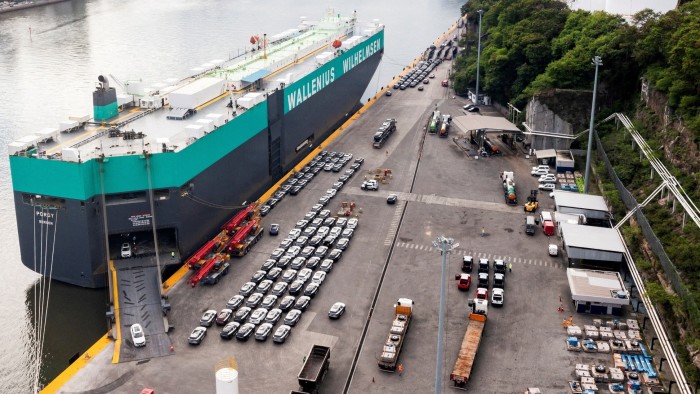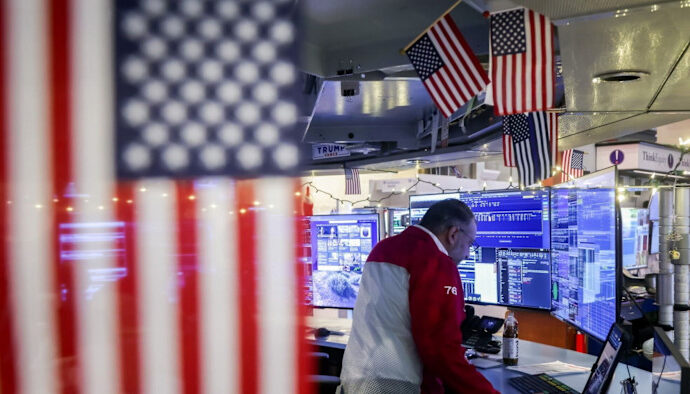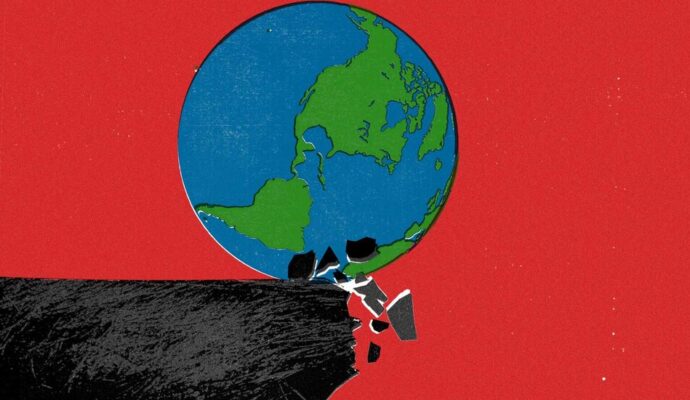
Unlock the Editor’s Digest for free
Roula Khalaf, Editor of the FT, selects her favourite stories in this weekly newsletter.
European carmakers are rapidly losing market share globally as Chinese rivals enter a new phase of expansion and innovation, said the head of the world’s biggest operator of car-carrying ships.
Lasse Kristoffersen, chief executive of Wallenius Wilhelmsen, told the Financial Times there was “massive growth” in shipments from China to Latin America, Europe, Africa and Australia amid Beijing’s domestic crackdown on price cuts.
“The reason why Chinese are winning market shares is because they innovate themselves,” he told analysts on a recent earnings call. “The Chinese producers have gone from being cost leaders to now being technology leaders.”
Chinese exports jumped by 23 per cent to 6.4 million passenger vehicles last year, more than 50 per cent higher than second place Japan, according to AlixPartners.
The consultancy expects Chinese manufacturers to capture 30 per cent of the global automotive market by 2030, up from 21 per cent last year, and driven by growth in emerging markets.
Chinese brands including BYD, Chery and MG owner SAIC have expanded rapidly in western Europe and accounted for 5.7 per cent of new car sales in the first nine months of the year, up from 3.2 per cent for the same period last year, according to Schmidt Automotive Research.
China’s proportion of the battery EV market in Europe is even higher at 10 per cent over the past nine months.
While Japanese and US brands appear to have lost some European market share to Chinese rivals, Kristoffersen suggested the sales growth for Chinese cars elsewhere came at the expense of the continent’s carmakers.
European carmakers face a triple whammy of shrinking sales in China, sluggish demand at home and higher US tariffs. “They are challenged in both their home market and in their east and west overseas markets, but we do see that they are taking measures,” Kristoffersen said.
Foreign governments have moved to limit shipments from China, with the US in effect banning imports and the EU raising tariffs on Chinese electric vehicles. Still, overseas sales have become even more critical for Chinese manufacturers as they grapple with bruising price wars at home.
Wallenius Wilhelmsen has historically benefited from western carmakers shipping their products to China. But the Norwegian group, which sells space on its ships to carmakers, is now trying to capture more revenue by helping newer Chinese brands to expand overseas.
BYD, the world’s largest and fastest-growing EV maker, is constructing a fleet of eight ships to transport its cars globally. It also has factories in Brazil, Hungary, Indonesia, Thailand, Turkey and Uzbekistan.
Kristoffersen said he did not see BYD or other customers emerging as rivals to Wallenius Wilhelmsen, but did expect competition from Chinese shipping giants such as Cosco.
“When we speak to our Chinese customers, they bought vessels and built vessels because they were afraid of not getting access to capacity. That fear is easing . . . so there will be Chinese players, but it’s not the most likely scenario that our customers will become our competitors.”


